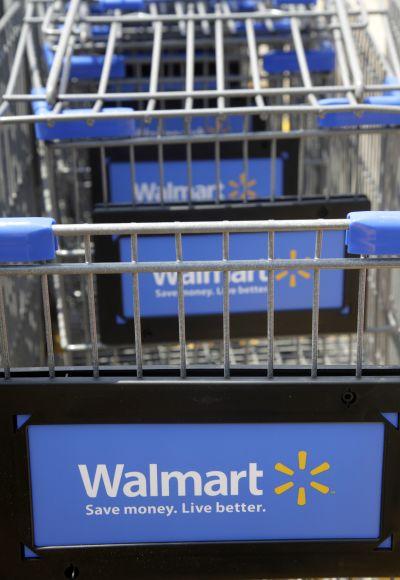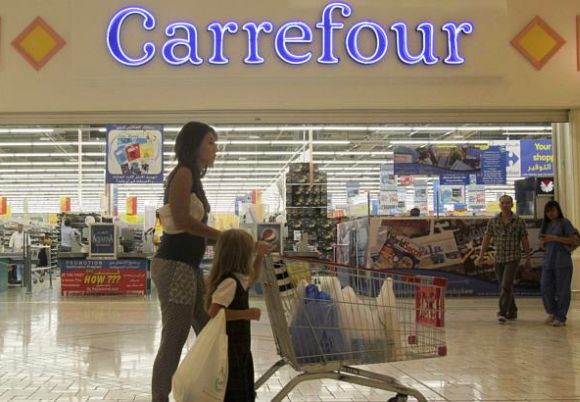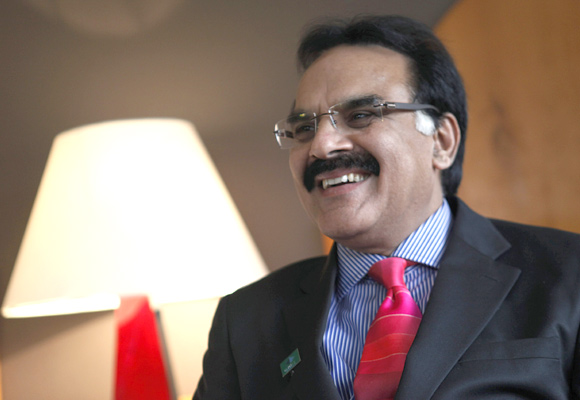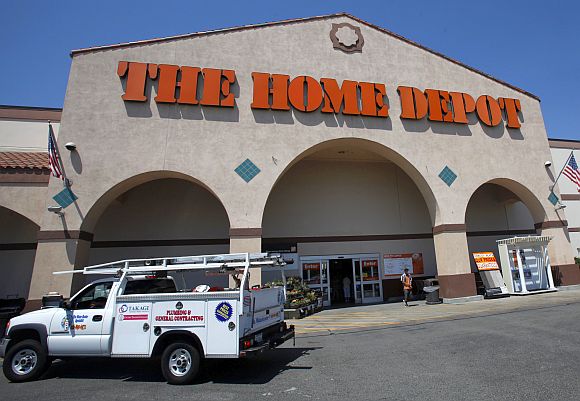 | « Back to article | Print this article |
Why big international retailers are not investing in India
In September 2012, when the government lifted curbs on foreign investment in multi-brand retail, international chains couldn't stop smiling.
Despite an inexplicable differentiation that the government chooses to make between multi- and single-brand retail, India Inc, too, was happy because many retailers hoped to attract much-needed capital to salvage their struggling businesses.
Almost nine months later when a government committee has recommended raising the foreign direct investment (FDI) limit to 74 per cent from the current 51 per cent, there's no word of cheer from anybody in the industry.
And going by what both sector analysts and company executives are saying, this situation is unlikely to change.
That's because the industry's expectations from the policy are some distance from what the government has offered so far: a policy so micro-managed and complicated that even an enhanced foreign investment limit is unlikely to change attitudes.
Click NEXT to read more...
Why big international retailers are not investing in India
Just to put things in perspective, no global retailer has moved so far to file applications with the Foreign Investment Promotion Board (FIPB), a key wing in the finance ministry that vets FDI proposals.
That's quite a departure from the early attitude of retailers - for instance, Walmart, the world's largest retailer, had indicated last September that it would start moving within 45 days to file an application with the FIPB.
For setting up retail stores, Walmart is yet to announce the shape of its partnership with the Bharti group, with which it has a 50-50 joint venture in a wholesale business.
Now, with the talk of the new FDI cap, both sides would like to wait and watch before inking a deal.
Even others like French group Carrefour, which is yet to identify an Indian partner, will wait for a clear signal from the government on the FDI level before signing up with anybody.
UK's Tesco, which is in a franchise tie-up with the Tata group, will also need to rejig the math before finalising the India deal now.
Click NEXT to read more…
Why big international retailers are not investing in India
This wait-and-watch mode is largely the result of earlier policy confusions, now compounded by this proposed new FDI limit suggested by a committee headed by Economic Affairs Secretary Arvind Mayaram.
Indeed, since there's technically no difference between FDI of 51 and 74 per cent, foreign chains are indicating that the government is taking the wrong route to attract investors in retail.
But in this, there's more than a hint of desperation in a regime less than a year away from the general elections, sorely in need of foreign capital to pull the economy out of a rut and unable to have any big bang reform to show for it.
So early next month, a meeting headed by Prime Minister Manmohan Singh is scheduled to take up the FDI issue, retail being one of the sectors in which the Mayaram Committee has proposed an increase. An Empowered Group of Ministers will also deliberate on the FDI issue.
But as a government official cynically quipped, all of this may be part of the finance ministry's wish list, but any radical shift in the FDI policy is bound to be a long-haul process. But the investment limit is the least of the issues.
Click NEXT to read more…
Why big international retailers are not investing in India
The bigger problem is the muddled "clarifications" to the multi-brand policy guidelines issued by the Department of Industrial Policy & Promotion (DIPP) recently on backend infrastructure, sourcing and even frontend stores, which have left foreign retailers fuming.
"My business plan does not work with these clarifications", "the government is not sure of what it wants", are some of the more restrained comments from international and domestic chains.
Some within the industry seem to grudgingly admit that companies are miffed because the multi-brand retail policy has not been diluted as they would have liked, unlike in the case of single-brand retail that has hardly had any political overtones.
From a mandatory 30 per cent sourcing from Indian micro, small and medium scale enterprises (MSME), the single-brand policy was changed to mandatory 30 per cent sourcing from India, "preferably from MSMEs" (italics added).
In the multi-brand policy, the government has refused to insert "preferably" anywhere, perhaps fearing a political backlash.
Click NEXT to read more…
Why big international retailers are not investing in India
The foreign chains versus Indian mom-and-pop stores and the job losses feared as a consequence of FDI in multi-brand may still be an election issue for 2014, and the government does not want to take a chance by relaxing the rules, even though it bit the bullet on FDI in multi-brand retail several months ago.
That said, the recent clarifications to the policy did give rise to more confusion. For instance, DIPP said it was still considering whether 50 per cent of the minimum $100-million investment made by a foreign retailer should go towards backend infrastructure as a one-time thing or whether it was to be a continuous process.
Lack of clarity on such a critical issue, even nine months after the policy, is disturbing. Also, the condition in the clarification that investment must be made in greenfield frontend stores as well, has come as a shocker to the industry. "This is a new policy requirement," said one embittered retailer.
Already hammered by the confusion in the multi-brand guidelines and recent clarifications issued by the DIPP complicating things further, the new FDI debate could not have sprung up at a worse time, a retail sector executive said.
Click NEXT to read more…
Why big international retailers are not investing in India
Although Commerce and Industry Minister Anand Sharma has called more than 20 retail CEOs, both foreign and Indian, to clarify the policy further at a meeting on June 27, companies are not too optimistic.
Curiously, the companies that have been invited for the policy meeting include Kroger, Walgreens, Home Depot, Costco and Aldi.
These are leading names to be sure, but had not manifestly displayed any great interest in the Indian retail landscape earlier.
The issue, as Arvind Singhal, founder and chairman of retail consultancy Technopak Advisors, sums up is that "if at 51 per cent FDI, there's no application yet, the government is unlikely to attract investors even at 74 per cent".
The problem, he reiterates, is that the policy is unviable in the current form. While pointing out that India can still be an attractive destination, Singhal suggested making the retail policy less restrictive.
"The only condition should be to make foreign retailers source more from India for their international markets, a step that will help us earn higher export revenue," he added.






